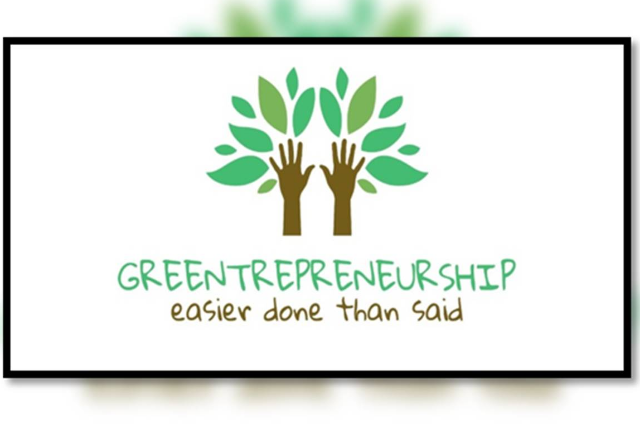What is done with knowledge, conviction, and meditation, will alone achieve maximum energy and efficiency!
- Chhandogya Upanishada
Derived from the mid-18th century French word “entreprendre” which means to “undertake”, simply put, Entrepreneurs are people who materialize an idea by bringing together the 4 M’s; Man, Money, Machine, and Methods. By entrepreneurs, the idea is not just limited to business or economic sense of how the world perceives it. It also points out to such leaders whether in business, politics, or social realms those have successfully synergized these resources to produce an outcome that is much larger than its constituents. In reality, though, the amalgamation of these 4M’s is not easy and beset with many difficulties. It is perhaps for these difficulties or other uncertainties that many start-ups fall before their take-offs. Persisting in-spite of failures is a quality, possessed by only the most determined that are few and far between. Despite the dearth, still, there have been such strong-willed personalities who have risen up to the challenges and acted as a Pierian spring for their contemporaries as well as the posterity.
Much emphasis has been laid on the last three M’s; the money, method, and machine, in lectures, seminars, board meetings, and even literature present on entrepreneurship, and attempts are underway to perfect them. Artificial intelligence, machine learning, data science, autonomous equipment, managerial techniques such as JIT (just in time), Gemba-Kaizen, (TQM) Total quality management), (TPM) Total productivity management, efficient logistics management, (ERP) Enterprise resource planning, Investment planning and host of other terminologies are the “hot potato” of the business world in modern times. Productivity is often measured by the volume of output, GDP per hour worked, waste elimination, profit maximization, resource use efficiency, and other such methods that also provide a business or a competitive edge. The problem is that all these actions focus on the outward excellence of humans. It has always been the case in the west, to conquer nature through systematic inquiry into it. Such an approach is indeed welcomed however it remains lopsided without adhering to the same system of inquiry into nature within that of Man. The result has been the unbridled pursuit of materialism and under whose weight, the west is crumbling down, the fault lines of which are now clearly discernible.
What remains less spoken about or rather elusive is the first M which is Man. It remains to be understood that even if we perfect the last three M’s and fail to train the Man up we are destined to fail. The shift in the economies around the world from Industrial to Knowledge-based is an indicator of the fact that in not so distant future the run for productivity gains through machines is going to throw much of the working population out of jobs. The blue-collar jobs which had been 88% in the 1960s were reduced to around 17% in the 1990s and will dwindle to 2% in 2025. Wholesalers are fast being displaced or eliminated as producers directly communicate via technology and electronic communication with retailers. Commodities are now being produced in “workerless factories” resulting in the inevitability of a decline in the n worker’s population. The top 20% of the knowledge workers will unsettle the bottom 80% of service workers resulting in a volatile middle class. In the absence of any reconciliation between the “haves” and the “have-nots”, civil unrest and consequent civil strife are inevitable. The likes of such an uprising have already been seen in countries such as Sri Lanka, Pakistan, and now to an extent in Bangladesh. Though the genesis of the upheaval in these countries may differ yet what’s common among them is the absence of the mentioned reconciliation process. Does it, therefore, remain a pertinent question as to how to train a Man the biological being to a Man who shall be the inspired leader of human beings? Entrepreneurs, not just of business but of societies and nations!
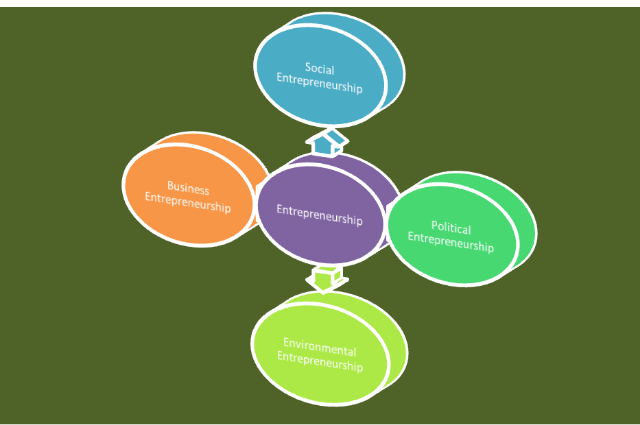
Facets of Entrepreneurship
Though business entrepreneurs have been at the root of the meaning of the word yet with the rapidly changing social and political environment the term has come to associate itself with other realms of life of human beings across the globe.
With the advent of the 4th Industrial revolution taking over the world by storm, radical and ineluctable changes have come to the forefront of societies across the planet. The pace of technological advancement has outrun that of human beings and the lag has created fissures in the moral, social and political life of human societies. This requires innovative and radical solutions to the challenges posed, that could transform looming threats into productive opportunities and enable societies and countries to withstand shocks and absorb them for a peaceful transition of humanity into the next level of its advancement.
Though, today there are several categories of entrepreneurs present across the world, for a general understanding they are broadly classified here under these four categories cutting across the length and breadth of contemporary societies.
- Political entrepreneurs are the innovators in the field of politics who reinvent their methods bottom up by disrupting existing structures. They design innovative political solutions for contemporary political problems and reorient political philosophy, associated-technology, mode of campaigning, and system of governance. The term “political entrepreneur” however is relative and also carries a negative connotation where they are synonymous with business entrepreneurs who accrue profits through favorable arrangements they make in liaison with government agents via lobbying and using political influence.
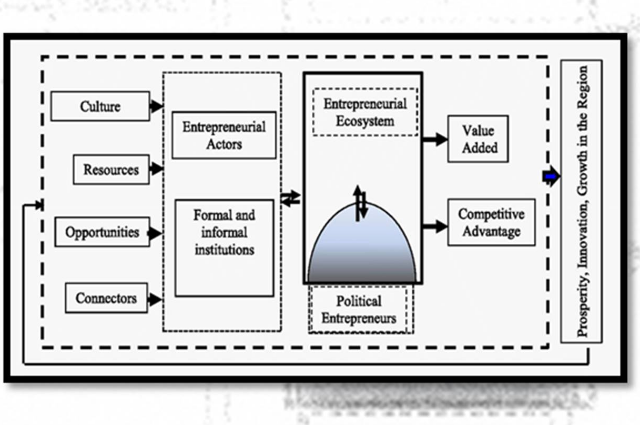
Barring the dark side of political entrepreneurship, such entrepreneurs are borne out of a “strong desire for change”. As already mentioned, the dents created on the moral, religious, social, and political fabric of the nations with the advent of the fourth industrial revolution, require such people who could lead against the incubus raised by the technological wave.
- A Social entrepreneur funds solutions that have a direct bearing on issues of social importance. A social entrepreneur is also driven by profits however the focus is on producing a positive impact on societal and community issues. E.g. The Godfather: Ashoka is the organization that has been supporting leading social enterprises around the world since 1981. TOMS, founded in 2006, was the first company that popularized social entrepreneurship in the past decade. It provides a pair of shoes to a deprived child for every pair of shoes they sell. Other examples include FIGS; Love Your Melon and Lush. In India Urvashi Sahni, the founder and CEO of (SHEF) Study Hall Education Foundation, an organization that offers education to the most disadvantaged girls in India, tops the list of social enterprises.

- Environmental entrepreneurship also known as ecopreneurship came widely into use in the 1990s. It applies principles of entrepreneurship to build green businesses that operate sustainably. Their chief task is to incorporate environmentally friendly practices in business operations and have a greater role in environmental tasks compared to other entrepreneurs. Given the scale of environmental hazards and global warming, their tasks and necessity cannot be overstated.
What or who is a “Productive Entrepreneur?
A “productive entrepreneur” is indeed a “holistic entrepreneur” since they can combine secular business knowledge and practices with evolved human capabilities to produce a “transformational leadership” that can revolutionize how we think, work, react and most importantly co-operate on differences and agreements. These “Productive entrepreneurs” do not follow the traditional “carrot and stick approach” but rather make use of their gumption in making informed decisions. They move beyond the traditional theory of 3P’s- Pay, Perks, and Promotion to eke out the best from the people they lead.
The Need for Productive Entrepreneurs
Though there are different facets of entrepreneurs, the common thread that runs across all of them is that they are innovators in their respective realms. They are the people who can produce something out of nothing; they can see opportunity amidst scarcity, adversity, and calamity. It is out of these needs that the developing countries require a class of entrepreneurs who can turn the tide of the current model of economic growth and translate it into a model of economic development. A model that does not lead to a lopsided growth of the “few” at the expense of “many”; a model that captures the real needs of the society, of the masses; a model that has a bottom-up approach rather than one pushed down the throat from above; a model that capitalizes on different potentialities of different individuals by identifying and grouping the like ones together rather than using the same yardstick to measure an ass and a horse by classifying them together. The perpetual problem, however, with any economic model has been that it does not account for the human factor since it cannot be measured. Humans have therefore come to be treated as commodities and their utility is measured by criteria of man-hours, commodities produced per unit of time, hours worked, hours absent, effectiveness, efficiency, cheap labor may be slaves and so on and so forth. Frederick Taylor and his scientific approach to management, Henry Fayol, the father of modern management with his scalar chain of command, The Hawthorne experiments, and the likes, all played their part well in their endeavor to raise productivity and management techniques. Though the Hawthorne studies, to some extent, emphasized the relation between worker’s productivity and human concern extended to them, yet in the course of time, as competition took a more fierce shape, such factors took to the backburner and productivity gains became the chief concern and the ultimate objective. The concomitant human factors such as labor dignity rights and condition of work etc were more in letter and less in spirit.
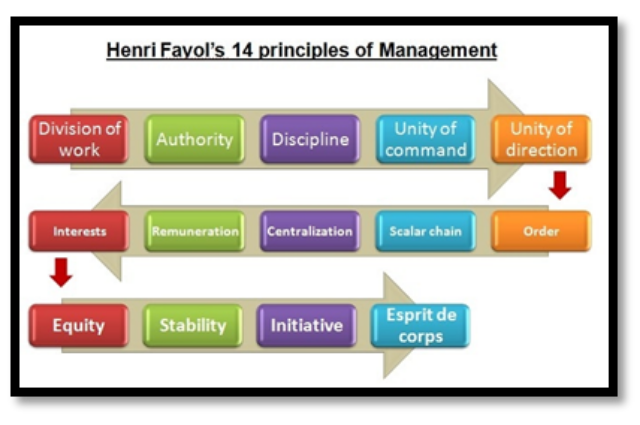
Picture by: Marketing91.com
It is amply clear, as mentioned earlier that of the 4M’s it’s the Man that has consistently been less pronounced and who alone can modulate and fine-tune the rest of the 3M’s- Money, Machine, and Methods. It is alone he who can incorporate social skills along with secular business knowledge to become a “holistic entrepreneur” that can radically transform politics, businesses, and societies to a higher plane of human advancement both materialistically and spiritually.
It deserves mention here that spiritual advancement does not connote God or religion but the latent qualities in human beings i.e. of love, devotion, loyalty, kindness, and human dignity. Love for colleagues, devotion to seniority and the management, loyalty to the workplace, kindness towards subordinates, and respect for human dignity irrespective of hierarchy and designation. These qualities are not “lofty ideals” but innate nature of us humans that we cherish and yearn for. It is these qualities that makes us “social”, it is indeed these qualities that make us “human”. It is in-fact, the absence of these qualities that have made humans so “individualistic”, societies so “fragmented”, businesses so “unethical” the world so “dry” and the planet so “hot”.
Qualities of a Productive Entrepreneur:
- Practices what he preaches
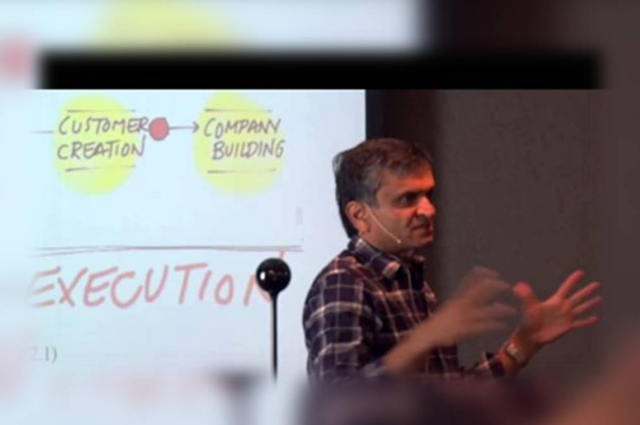
Picture by: Sam-network.org
It is of utmost importance that he should be wary of his actions, both in public and private. What successful people do, is followed by the commoners, says the Bhagvad Gita. Energy tends to flow from a higher source to a lower. His actions and words should be aligned and act as a source of inspiration and energy for his employees/workers to emulate the same in their conduct and orientation towards achieving the goals of the enterprise. It’s akin to a chain reaction; once set into motion, will sustain and grow by itself. People, when they realize positive changes in their personalities tend to maintain the momentum and once accustomed to the practice, will try to elevate themselves of their own accord.
- Has a vision for future

Behind the success of any successful enterprise, whatever its scale, is a futuristic vision. He should be able to anticipate the changes that are occurring and will occur in society and build a life and processes geared to absorb and accustom to those changes. None of the planning can succeed without this vision. It is perhaps for this reason that elders in Indian society are respected and honored as they, because of their vast experience, are capable of right vision of the future. Chanakya said:
"Ministers are those advisors who can decide what should and should not be done”. Its modern equivalent is the inner circle/council of a productive entrepreneur. In Japan seniority is respected for the same reason in their organizations and specially recognized for promotions, unlike the west where overnight success is guaranteed by the success of the idea presented.
- Dynamism that is spontaneous and inspiring to help and excel
The visionary entrepreneur must also act as a missionary who is extremely practical and intensely dynamic. He should be capable of transforming his ideas into verifiable reality. Such kind of dynamism and strength finds their source in the motivation of helping others. A simple rule; “what goes around, comes around”
- Charismatic

Picture by: Techpanda.com
An entrepreneur is a leader and as such should be adept at the art of drawing different kinds of people towards him. As mentioned earlier that he should not be like someone who measures a donkey and a horse by the same scale and rather extract the best from each one according to their qualities and aptitudes. He is the one who draws upon, sieves, and processes the resources to get the maximum productive output and in return replenishes the resources to maintain their health and productivity. Quality that draws people to such a leader is borne out of factors such as sincerity of feelings for the employees/workers, in spite of being the “first among the equals” identifies itself as one among its workers/employees and free of biasness among or between itself and employees/workers.
- Firmness or Evenness of mind
It would be stupid to expect success always and in most undertakings intermittent failures are a realistic feature. A productive entrepreneur, as such, should accept the situation with calmness and equanimity. Hurling curses in the event of failures is only a reflection of the weakness of mind and character. It never does good to anyone but only creates fissures, jealousy, and animosity in relationships be they personal or professional. A calm mind in failure leads one to deeper introspection and identifies clearly where the process went wrong and ultimately leading him to a lasting success. This equanimity is the secret of facing all situations at work. Yogah karmasu kausalam (Yoga is skill in action) - says the Bhagvad Gita. That skill consists in maintaining the evenness of mind in success and failure, in the performance of work as one’s duty.
- Pays attention to the means that lead to the end
Out of many, the first duty of a productive entrepreneur is to pay proper attention to all the steps that will lead to success. Many failures come because too much attention is focused on the goals and the steps that lead to them are forgotten in the process. It is imperative that once the goals have been set, the target is identified; such entrepreneurs should calmly, steadily, and intelligently bring together all their energies to perfect the means to the goal. This will certainly lead to success.
- Respect for others and all works

Swami Vivekananda says that the best leader is “egoless”, he “leads like a baby”. An entrepreneur needs to rise above his personal ego and give respect to others. Be it a strategic employee or an office sweeper. We may occupy different positions in life due to our inherent but differing mental and physical capacities however giving respect is a matter of choice, not capacity. “What warmth does to wax, respectfulness does to human heart”. People are required to be treated as adults, as partners, and with respect and dignity. They are not to be treated as capital spending and automation- as the primary source of productivity gains.
- Orienting place of work as a place of worship
It is his responsibility to make the environment ideal for work charged with hope, enthusiasm, and an urge for excellence. A bad environment adversely affects the workers. Crammed-up spaces with commodities, walls covered with dirt and soot, and half-fed workers grinding in ill-ventilated and dark chambers will not only bring production down but also cause irritation and dissatisfaction among the workers. Well-lit, spacious, decorated, and ventilated rooms and greeneries around result in a happier mood and better production, both qualitatively and quantitatively. Visual images of lively scenes and the audio impact of soft music release the tension of tired minds and nerves and bring fresh energy to work.
- Develops the idea of a family
It is the responsibility of a holistic entrepreneur to make co-workers feel that management/council and the workers/employees belong to one single family and share equally the rewards, the punishments and the rise of the organization. Management looks after workers welfare and the workers take care of the success of the institution – this has long been the practice of Japan’s management culture and what India needs today in spirit and form.
- Women as productive entrepreneurs
The masculine qualities of “logical analysis” and “drive for action” dominated businesses and have led companies to be result oriented and demanding. Team building, intuitive thinking and humanizing qualities are natural to women. Productive women entrepreneurs can, therefore, bring about a paradigm shift in entrepreneurship. They have an innate capability of steering the spirit of entrepreneurship from dualistic and aggressive to holistic and humane.
The Way Forward:
Indian ethos asserts that the spirit must lead matter and not vice-versa as has been the case in the west. In reality, however we are doing the exact opposite. In imitating the western model of capitalism led growth, India, to much extent if not completely, has sacrificed its values and ethos. Fortunately few examples still persist who have demonstrated the successful blending of Indian ethos with western wealth generating capacity e.g. The Tata group. It was Swami Vivekananda’s holistic vision that ushered in the great welfare based Industry in India. Another example includes IT major Infosys under Mr. Narayanmurthy.
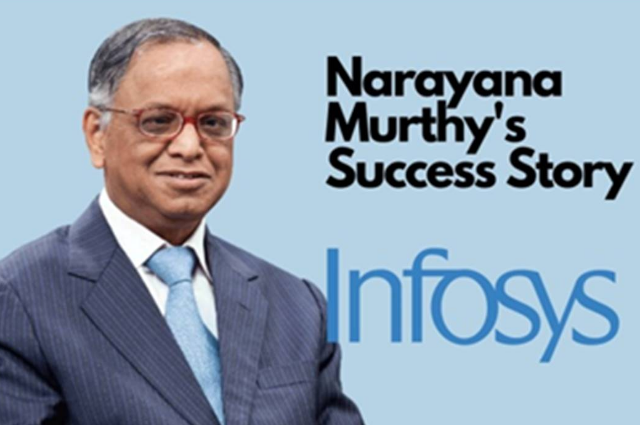
The world is changing fundamentally and rapidly. In the race to the top India has left a large chunk of its unexplored human resources behind. They maybe, are devoid of education yet most are living repositories of traditional knowledge and cultural ethos that descended over them by their lineage. What they need is the support of the state- through scientific education, imbibed with the “dynamism of the west” to bring out their outward excellence in the form of agricultural, medical, education, technical entrepreneurial initiatives. At each level of social hierarchy the opportunities for outward excellence shall be thrown open, not as a commodity with a price tag beyond the reach of the most vulnerable however in the spirit of national interest treating education as a path to liberation. It is both the duty as well as in the national interest of the state to make available quality secular education to every individual of the country and the individuals will chalk out their own destiny that shall be the individual’s personal karma yoga.
More importantly, people learn to imitate rather than imitate to learn, therefore it is imperative that the productive entrepreneurs exemplify the Indian ethos in their skills, learning, behavior and habits. It is their actions that their followers, employees, workers and even family members will pick up. As Krishna exhorts in his sermon to Arjuna “Yad Yad Acharati Sreshtha Tat Tat evetaro janah, Sa yat pranamam kurute lokah tat annuvartate”, “Whatever the excellent and best ones do, the commoners follow.”
This will bring out the inner excellence in them. It is through the synthesis of the external and internal excellence that the commoners will obtain the requisite knowledge for any task at hand, with that knowledge they shall meditate upon the informed actions, such informed actions will produce the necessary conviction in their action that shall produce maximum energy and efficiency in whatever task they undertake. This shall bring out the best in each individual who will be a living ambassador of the proclamation made by the Chhandogya Upanishada.


